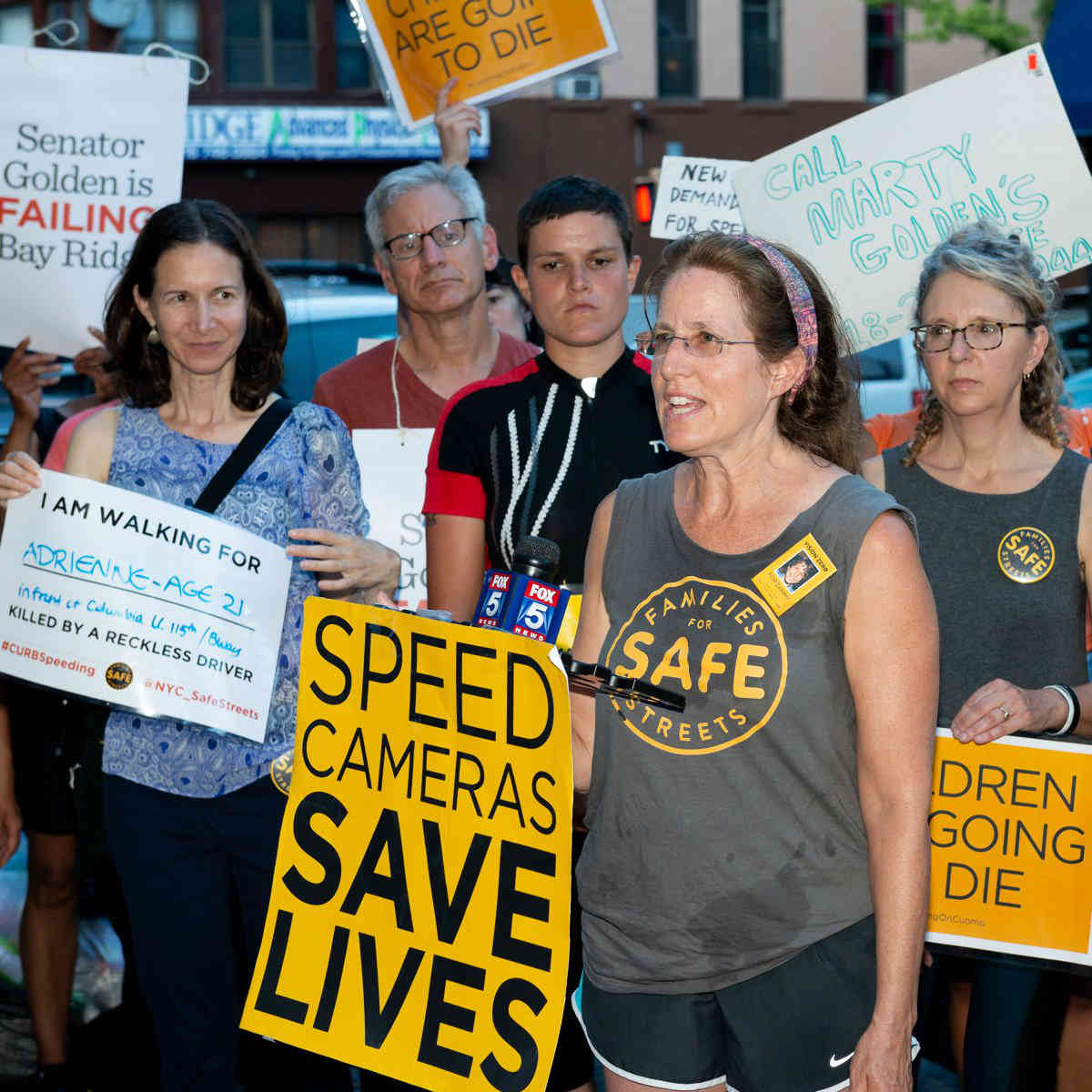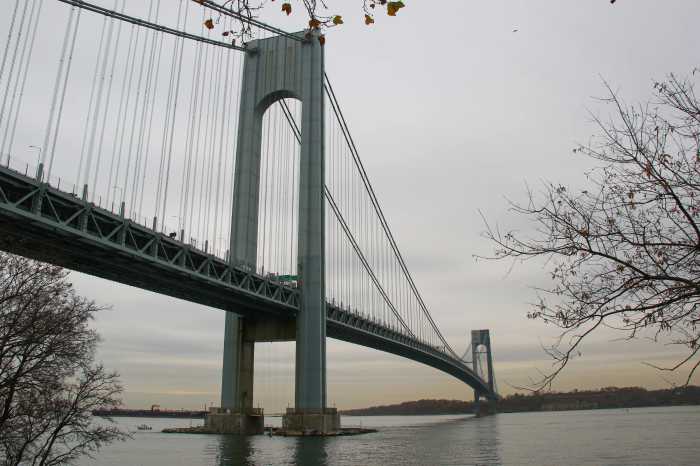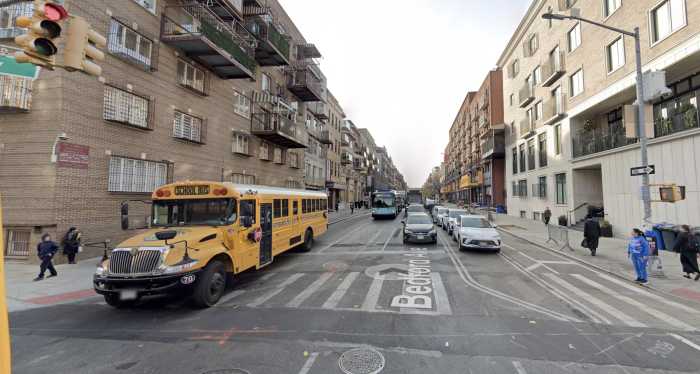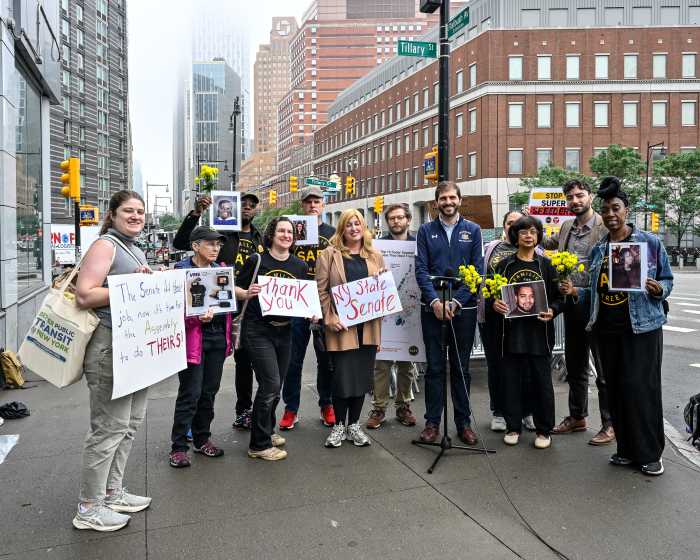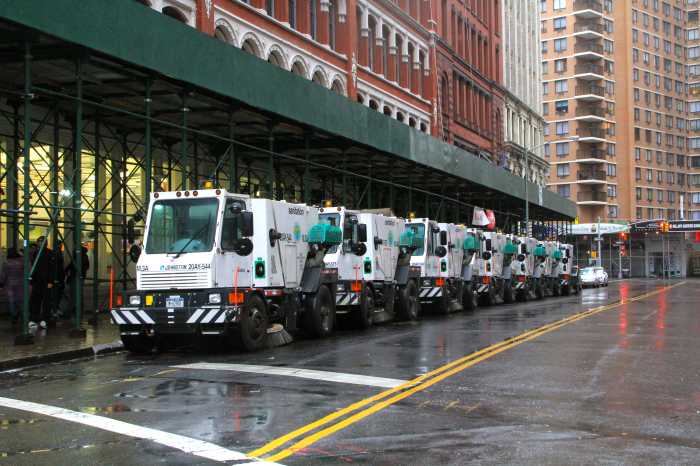Speeding drivers had better get ready for their close up.
The city’s 140 school-zone speed cameras will resume issuing tickets the day before more than 1.1-million schoolchildren return to classes on Sept. 5, thanks to a Council-brokered deal between Mayor DeBlasio and Gov. Cuomo.
A Park Slope mother who lost her son to a speeding driver five years ago and has led the charge calling for the cameras to be turned back on said she was grateful that Cuomo supported the solution after the Republican-led state Senate failed to vote to pass a bill to turn the cameras back on.
“After your child dies, it’s hard to ever be grateful — the world seems very dark and cruel,” said Amy Cohen, whose 12-year-old son, Sammy Cohen Eckstein, was killed by a speeder in 2013. “But today we all stood with [Cuomo] and had a measure of gratitude for his willingness to explore and engage a creative solution because the Senate was not acting.”
Gov. Cuomo took the first step to turn the cameras back on by declaring a state of emergency before the city’s school year begins, and signing an executive order on Aug. 27 reinstating the state law and granting the city access to state Department of Motor Vehicle records so that it can resume sending tickets to the owners of cars that the cameras catch speeding. The Council will introduce and vote on legislation to reinstate the program in an emergency meeting today, and Mayor DeBlasio plans to sign it into law on Sept. 4.
Council Speaker Corey Johnson told the New York Daily News, which first reported news of the deal on Aug. 26, that the new bill “allows for the expansion of the program,” but the Council press office did not respond to a follow-up inquiry by press time about how and when the bill could add more cameras.
Cuomo said the temporary fix does not absolve the state Senate from the responsibility to pass a bill preserving and expanding the program, since executive orders are only valid for 30 days and he’ll have to re-sign it each month.
“This is not a substitute for the state legislature coming back and passing the law,” Cuomo said. “We still need the Senate to act responsibly and come back and pass a permanent law so we don’t have to do this, 30 days by 30 days interim situation … they didn’t do it since January, and they’re still refusing to do it now, and it is inexcusable.”
The state Senate ended its session on June 20 without voting on a bipartisan bill that would reauthorize the speed cameras and double their number citywide over the next five years after state Sen. Simcha Felder (D–Midwood) — who caucuses with Senate Republicans — did not allow it to leave the Cities Committee, which he chairs. As a result the city’s 140 cameras — present in six percent of the city’s 2,300 school zones — stopped doling out tickets on July 25, when the original 2013 authorization expired.
But the city kept the cameras on to collect speed data, and the mayor’s office announced on Aug. 13 that the cameras caught 132,253 drivers speeding through school zones citywide between July 26 and Aug. 10 — and 67 percent of those were in 42 school zones across Brooklyn, according to a spokesman from the mayor’s office.
Statistics prove that the cameras do slow drivers down and improve safety. There were more than 60-percent fewer speeding violations in school zones with speed cameras in the two years after they were first installed in 2014, and a nearly 15-percent reduction in injuries in school zones with the cameras, according to a Department of Transportation report published last year. And the cameras reduced fatalities in school zones by 55 percent since they were installed.
Activists spent the summer demanding that leaders in the state Senate’s Republican majority — particularly state Sen. Marty Golden (R–Bay Ridge) — do more to pressure Majority Leader John Flanagan (R–Long Island) to reconvene the chamber and bring the bill to a floor for a vote. But Golden issued a statement in response to the new speed-camera deal that accused Cuomo of hiding behind the mayor and the Council, and even suggested that it would be successfully challenged in court.
“A short-term solution is no solution at all,” Golden said. “The Executive Order allowing the City Council to circumvent the Legislature is likely in violation of State Law. There will be a ticket issued, and someone will sue saying it is illegal. The State will lose, there will be confusion, and that will cause distraction to the fact our children will still not have the protection of speed cameras.”
Cuomo conceded that there may be legal pushback to the measure, but said he believes it is legitimate and necessary to protect the lives of kids, and accused state Senate’s Republican majority of prioritizing politics over children’s lives.
“I believe it is legally prudent and legally sustainable, but it is an aggressive legal action,” Cuomo said. “But I believe we are also in extraordinary circumstances, and I’m not going to be a governor who sits by and jeopardize human life, especially the lives of children.”
Councilman Justin Brannan (D–Bay Ridge) said the Council stepped in where the state Senate abdicated its responsibility to the public to vote on the bill to preserve and expand the program.
“The Republican-controlled state Senate made it clear their solution was to use school kids as pawns while blaming everybody but themselves,” Brannan said. “The Council persisted and found a way to fix this problem in time for the start of school. People elect their politicians to fix problems, not to point fingers.”


